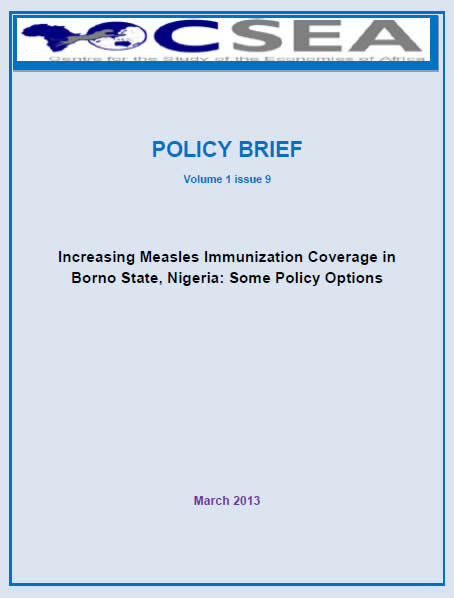Publication Date:November, 2013
Volume Number:1 Issue 9
Document Size:4 pages
Measles remains one of the leading causes of infant morbidity and mortality in Nigeria.Despite the efforts made by the Nigerian government, policymakers and otherstakeholders to increase children vaccination against infections, measles vaccinationcoverage remains very low. This situation is particularly profound in the Northern part ofthe country, with Borno State requiring urgent attention. Therefore, this policy briefpresents a summary of a policy simulation study of two measles immunization programsfor children of age 9-23 months which can be used to boost measles immunizationcoverage in Borno State. These programs are free immunization against measles withmedia awareness campaign (Policy A) and free immunization against measles with houseto house campaign (Policy B).
Overall, the results reveal that providing free immunization against measles complementedwith media awareness campaign is more effective and beneficial than free immunizationcomplemented with house to house visitation. However, for government to significantlyincrease measles immunization coverage, reduce measles induced death as well as makesignificant progress towards the attainment of Millenium Development Goal (MDG) 4 inBorno State, the existing policy of free immunization should be complemented with houseto house campaign in the rural areas which are characterized by high levels of illiteracy.Similarly, in the urban areas where most people are educated, the free immunizationprogramme should be supported with media awareness campaigns.

